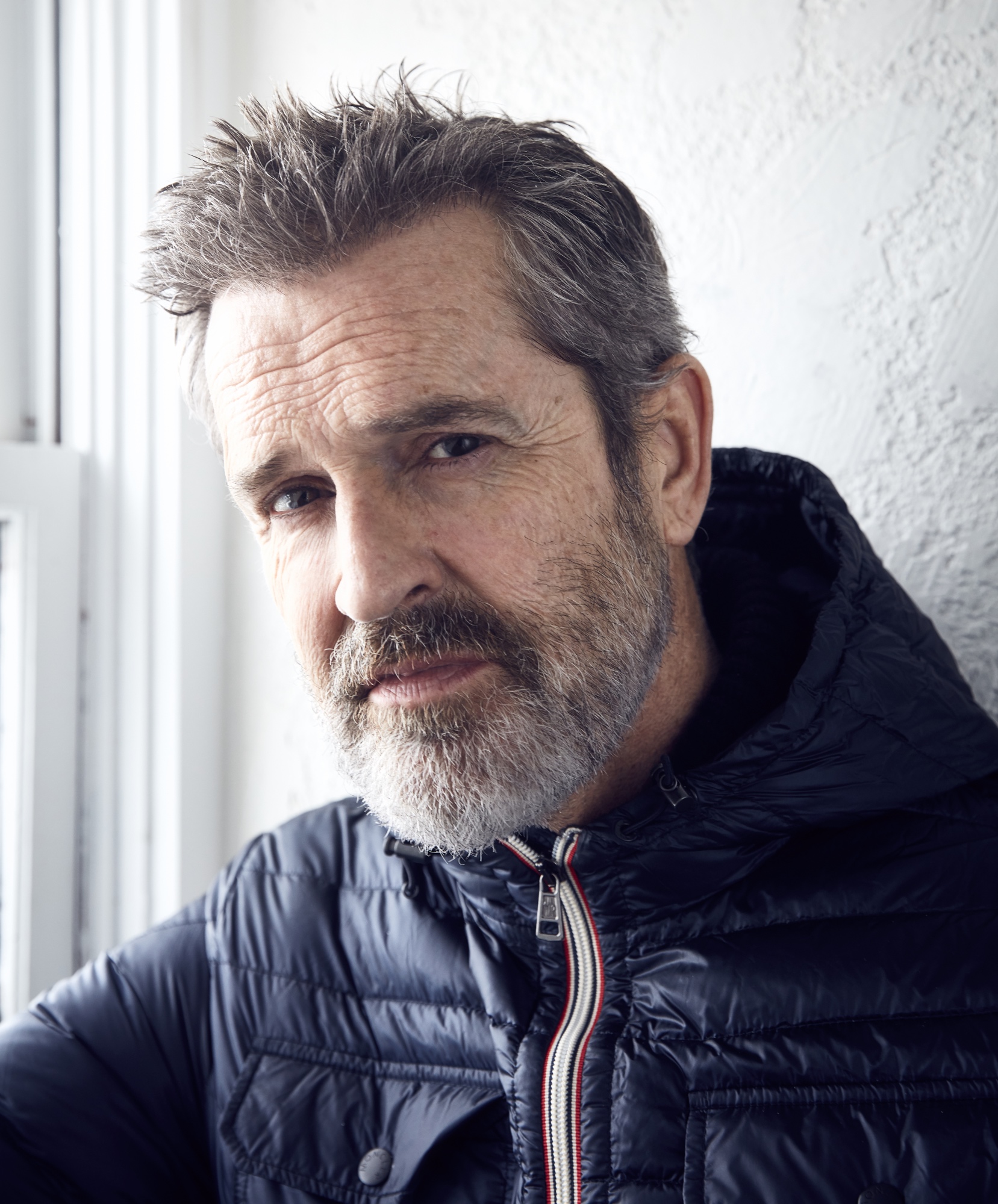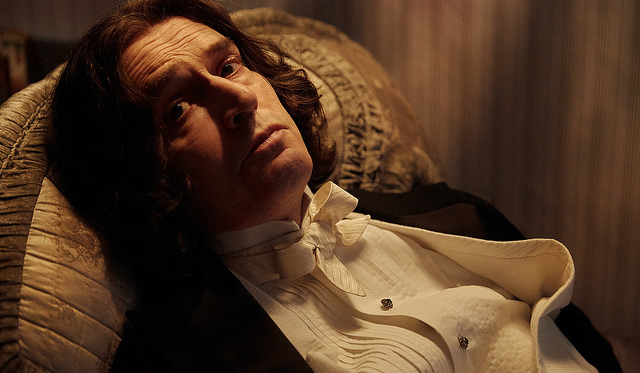
- Festivals
Rupert Everett in Sundance With an Ode to ‘Falling Star’ Oscar Wilde
With his salt and pepper beard and some lines of time on his still handsome face, British actor Rupert Everett, 58, still possesses a matinee idol look. He’s one of the first Hollywood stars to come out as a gay man and enjoying a sizable and durable career. Everett is at the Sundance Film Festival with his directorial debut, The Happy Prince, which he wrote and headlines playing Oscar Wilde (with the help of a fat suit) in the last stages of his storied life. The film is produced by his good friend, Golden Globe winner Colin Firth, who plays the small role of Wilde’s loyal friend Reggie Turner. Everett has a passion for Wilde, as his work in Wilde-based movies, An Ideal Husband and The Importance of Being Earnest attests. In The Happy Prince, we see Wilde in the tragic period following the two years he spent in jail and forced labor, following his trial for obscene acts and homosexuality. After the ordeal, he moved to France, where he died in 1900, at just 46 years old, broke and alone.
Right after our interview in Park City, Everett left for Rome, to film The Name of the Rose, the TV miniseries based on the acclaimed novel by Umberto Eco. He will then go to the Berlin Festival in February to present his The Happy Prince.
Oscar Wilde is not an unfamiliar character for you. Tell us about your relationship with him and why the decision of directing this film?
I think Oscar Wilde has been a lucky character for me in many ways throughout my career. I did a few Oscar Wilde plays on stage, in London, France, and Scotland, and they always worked out quite well for me. And then I did The Ideal Husband and The Importance of Being Earnest as films, and they also worked out very well for me. So I was intrigued by trying to take it further.
The main challenge?
It takes a certain set of skills to act out Wilde’s dialogues, which tend to be long and need to be said in an informal way, as to avoid the weight of his word, and as a slight comedic actor – as I am – I think that could be my strength. You have to think what people would like to see you in, and I hoped when I started off embarking on writing the screenplay, that it would be a perfect vehicle for me, that I could maybe find some money to make the film. That’s how it all started.
Why did you choose to focus on that sad period of Wilde’s life?
I wanted to explore his post-prison exile because for me it reveals the most romantic and interesting, fascinating side of him; and partly because I love the idea of falling celebrities! I loved the idea of him being out of prison but finding his intellectual freedom also when he was still in jail. There was no way he could escape from his past and his reputation, so freedom wasn’t really freedom for him, and I found that was a very interesting angle to dwell. And also this idea of relationship, what is love at the end? Another interesting angle: he went back with his fatal lover, Lord Alfred Douglas, which really ended all possibility that he would ever have of going back to his wife and seeing his children again. Which was such an insane thing to do, especially when he had another lover who really adored him and he actually underneath it all also adored. I found all these themes very interesting ones to develop in the movie.

Rupert Everett as Oscar Wilde in his film The Happy Prince.
courtesy of the Sundance Institute
In this climate of sexual harassment and the “Time’s Up” uprising, Oscar Wilde is an example of how fast you can fall from grace.
Very true. He was friends with the Royal Family. He was the life of the Cafe Royal and ended up a vagrant, really – the last vagabond of the 19th Century. So it is an amazing fall from grace and I think one of the things that was definitely appealing about him as a character is what happens to famous people. Is not really the area of my film but he thought the whole world belonged to him. It’s a fascinating thing what sometimes happens to famous people. Success makes you slightly tunnel-visioned towards the world. At one point, when the court case was coming up, he said that he was completely blinded by his own success. He thought that the working classes were behind him. That’s what he thought and I’m intrigued by that because having been brought up in cinema and being around a lot of famous people, I saw how some of them do get this kind of lunacy. You are surrounded by people who say yes to you all the time and the world suddenly looks like a place that is your kingdom and of course it’s not. And the other thing I love about Wilde is being a fool, or an idiot, which is also very attractive to me because we all are! In a way, I think that one of the things that’s durable about Wilde’s image is that we all make huge mistakes in life and he made enormous. The whole thing was a gigantic error of judgment and the price he paid for it was huge.
What is the legacy Oscar Wilde left us?
He’s left us with the beginning of the gay liberation movement, or what is now the LGBT movement. It all started with Oscar Wilde. Homosexuality as an idea, as a debated issue only got going after Oscar Wilde died. So he’s the beginning of that road, and for that, I think he has a relevance, the same relevance that for me Christ has, in a way. He is the beginning of what we are living now, and our freedoms which we fought for and got so far started with his sacrifices in a way.
Finally, your thoughts about the Sundance Film Festival.
Sundance is great, I had a lovely time here in Park City, it’s a fantastic festival, partly because is outdoors, in the snow, a little bit rougher than Cannes, for example. There are a lot of opportunities here, so I am thrilled to be here as a director.